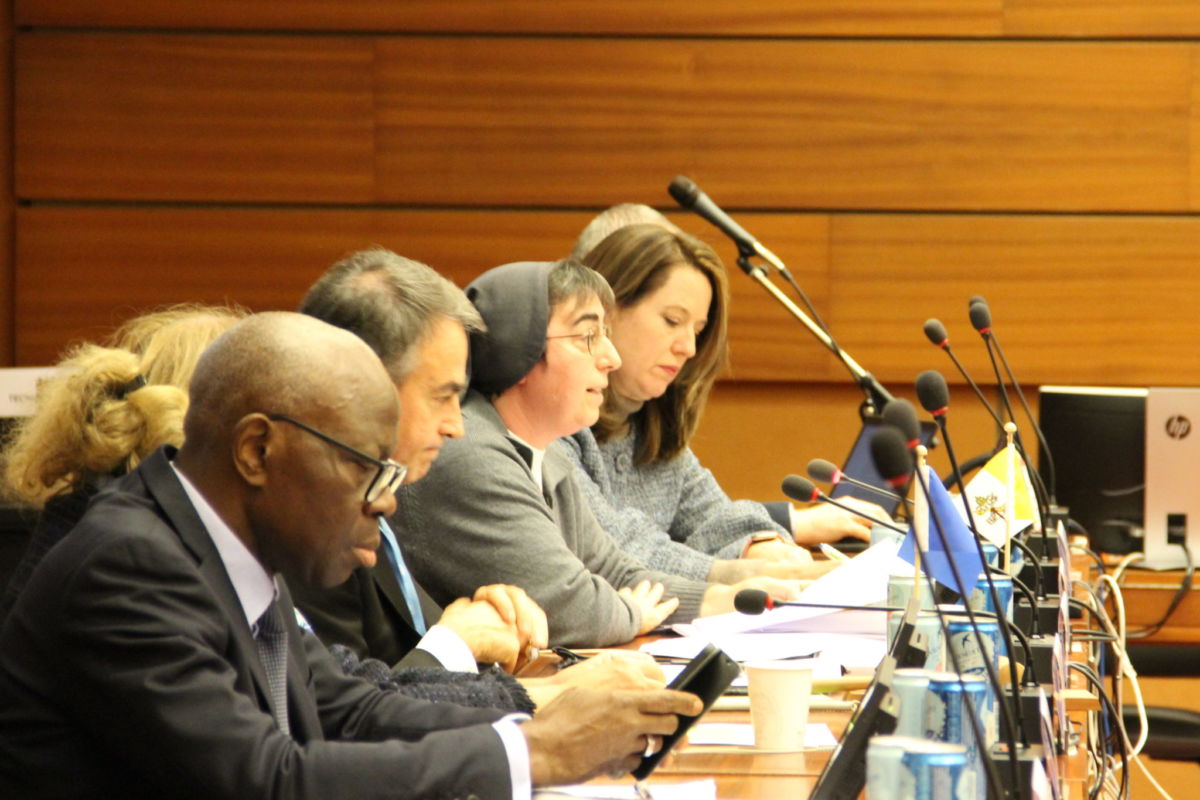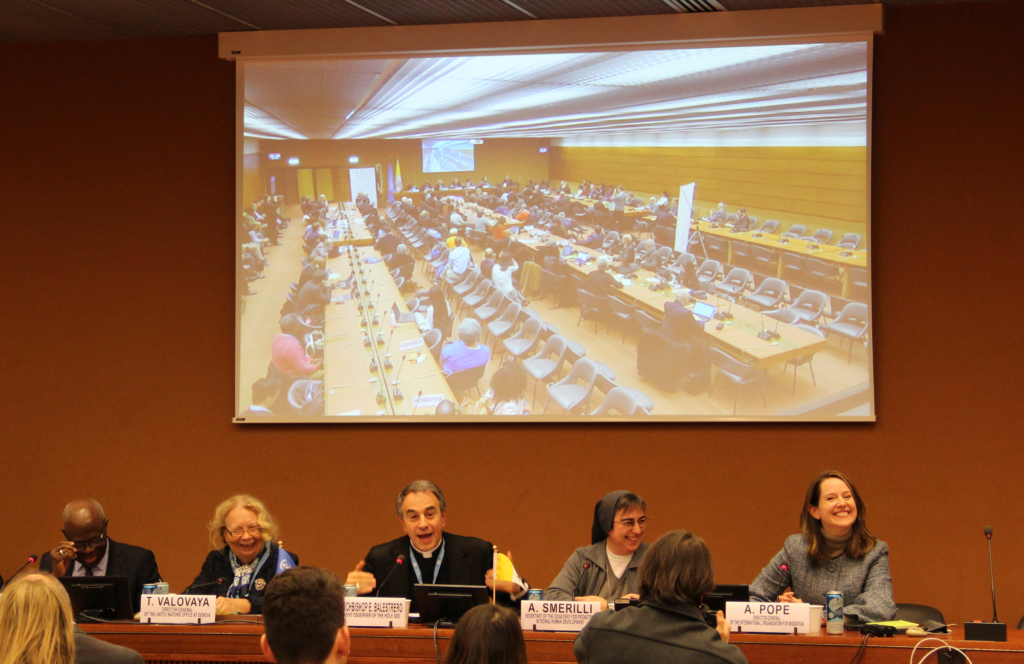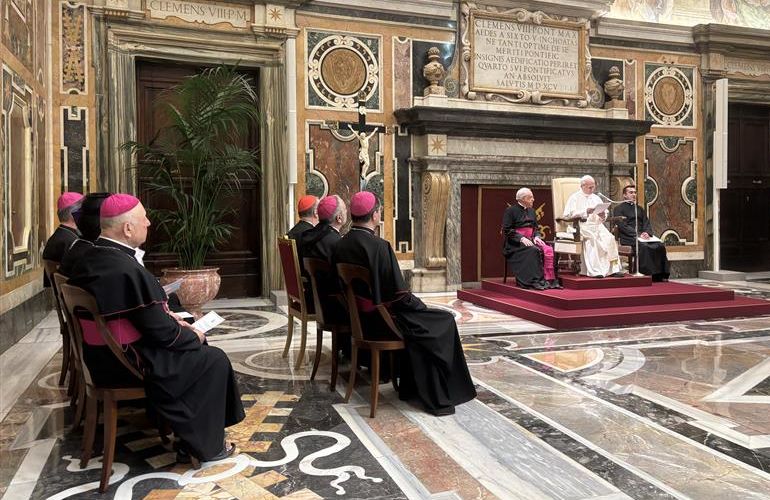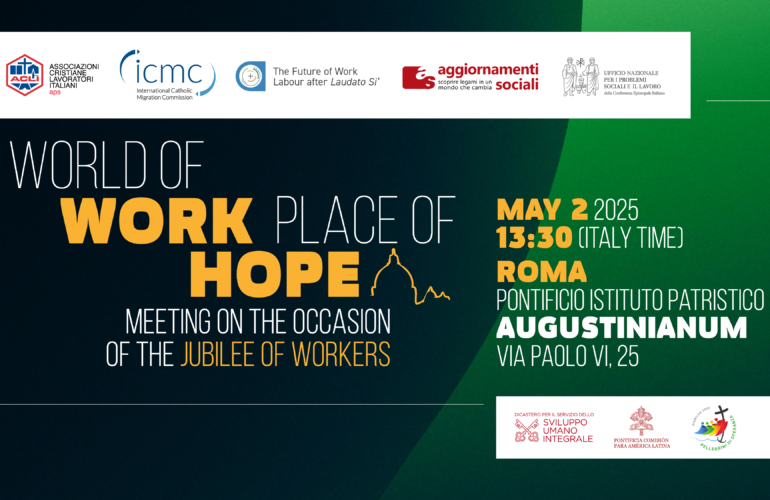Upholding Human Rights in the Face of Climate Crisis

On 8 December 2023, representatives of several UN agencies, of the Permanent Mission of the Holy See to the UN in Geneva, and of the Dicastery for Promoting Integral Human Development took part in a high-level event at the UN in Geneva, during which they commemorated the 75th anniversary of the Universal Declaration of Human Rights. The event highlighted the importance of Laudate Deum, Pope Francis’ recent Apostolic Exhortation on the Climate Crisis, as a roadmap to achieve human rights for all.
On 10 December 1948, as a response to the atrocities witnessed during the Second World War, UN representatives of all regions of the world adopted the Universal Declaration of Human Rights. This landmark document articulates the inherent rights and freedoms to which all individuals are entitled, regardless of nationality, ethnicity, gender, or any other distinction. It was the first time in history that representatives from all regions of the world set forth fundamental human rights to be universally protected.
To commemorate the 75th anniversary of the Declaration, the International Catholic Migration Commission (ICMC), along with the Permanent Mission of the Holy See to the UN in Geneva, the Caritas in Veritate Foundation, the Permanent Mission of the Sovereign Order of Malta, and the Forum of Catholic Inspired Non-Governmental Organizations, held a High-Level Event entitled “The Universality of Human Rights and the Universal Responsibility to Care.”
The event, which took place at the UN, was moderated by H.E. Archbishop Ettore Balestrero, Apolistic Nuncio and Permanent Observer of the Holy See to the United Nations Office in Geneva. Ms. Tatiana Valovaya, Director General of the United Nations Office in Geneva, Sr. Alessandra Smerilli, FSM, Secretary of the Dicastery for Promoting Integral Human Development, Mr. Gilbert Houngbo, Director General of the International Labour Organization, and Ms. Amy Pope, Director General of the International Organization for Migration, were featured speakers.
The participants acclaimed the Declaration’s importance. Ms. Valovaya called it “a testament to our shared commitment, enshrining common values that transcend borders, cultures and faiths.” Archbishop Balestrero described it as a “cornerstone of the life and work at the UN,” and Ms. Pope called it “a roadmap for equality, for freedom, for justice, to protect the rights of every individual.”
While recognizing the Declaration’s text as a guiding beacon, participants also highlighted the international community’s shortcomings in living up to its standards, particularly regarding the pressing climate crisis.

In his opening address, Archbishop Balestrero reaffirmed the right to life enshrined in the Declaration and emphasized the importance of protecting the most vulnerable among the human family: those “in sickness or infirmity, in conflict and war, in places of work, [and those fleeing] conflict, disaster and the effects of climate change.” He affirmed that the international community’s response “has not been adequate, while the world in which we live is collapsing and may be near the breaking point.”
Ms. Valovaya stressed the urgent need for multilateralism. She shared her vision of a UN system built upon the values of the Declaration and focused on finding convergences between different interests. She praised Pope Francis for being “a strong believer in the role of the UN and [in] the value of multilateralism.”
In her address, Sr. Smerilli presented “Laudate Deum”, Pope Francis’ Apostolic Exhortation published in October 2023, in which he calls for urgent and decisive action to address climate change. Sr. Smerilli said that safeguarding Human Rights and protecting creation are two sides of a same coin. “It is no coincidence that […] God commands the first human beings to ‘cultivate and keep’” their environment, she said. “It is respect for life that allows for the recognition of the dignity and rights of both the human person and the environment.” She echoed Pope Francis, calling on the international community to accept “our ethical responsibility toward the new generations, and the world that we will hand over to them as a legacy and inheritance.”
Mr. Houngbo’s intervention emphasized the interdependence of work, care, and social justice. He said the rights to work and to access just and favorable work conditions are enshrined in the Declaration. “There is no lasting peace without social justice,” he noted, adding that only “work that contributes to the restoration of full human dignity will help to ensure a sustainable future for future generations.”
Ms. Pope noted that the Declaration does not “distinguish between those who have legal status, a particular nationality, those travelling by visa or travelling by boat at the hands of a smuggler.” “We have often fallen short of the obligations that are set forth in that declaration when it comes to [migrants],” she said. She noted, in particular, the situations of migrant workers and of people displaced by climate change, and urged States to work towards a future in which migrants’ dignity and rights were respected.
Emphasizing the key principles of the Declaration, such as dignity, equality, and mutual respect, the event’s participants noted that it could serve as an instrument of hope to pursue collective action and secure the well-being of both people and the planet.



